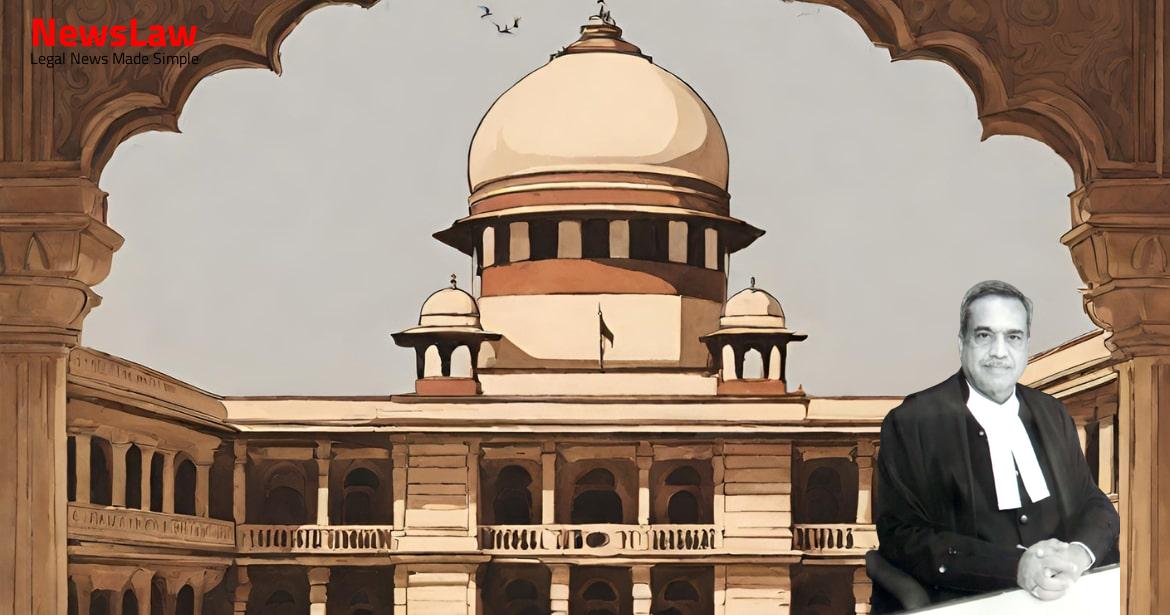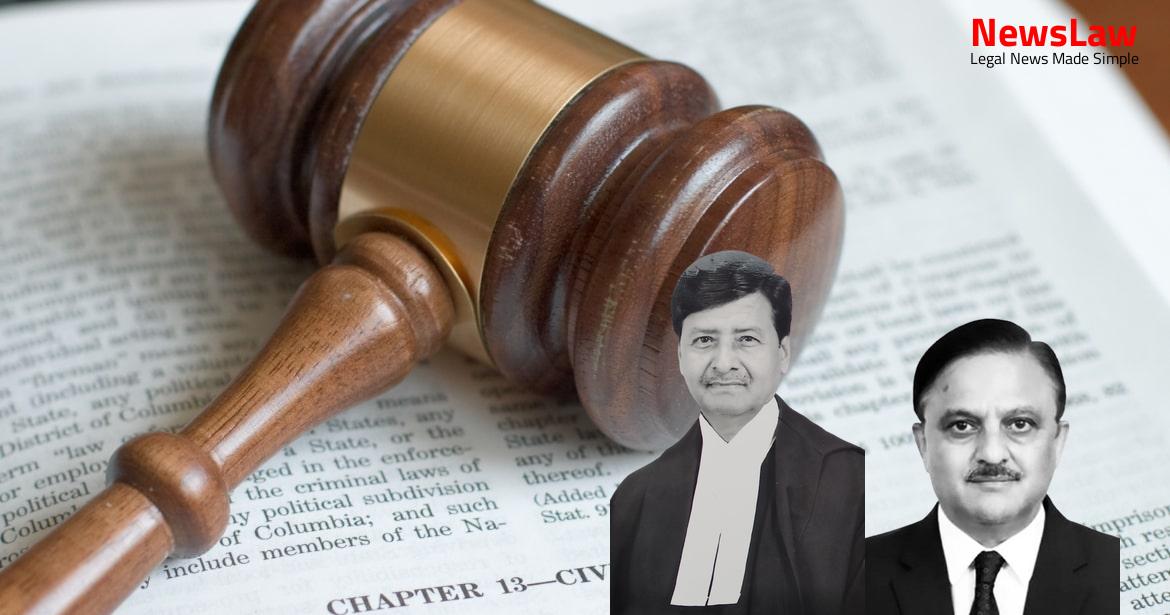Explore the legal intricacies surrounding the provision of reasonable accommodations for persons with disabilities in competitive examinations. The court’s detailed analysis underscores the importance of upholding equality and non-discrimination for all individuals, emphasizing the need for tailored accommodations to ensure a level playing field. Join us in understanding the significance of reasonable accommodation in promoting inclusivity and equality for persons with disabilities in legal contexts.
Facts
- The appellant declared himself to be a person with a benchmark disability of 40% or more in his online application for the CSE 2018.
- The appellant sought the services of a scribe for the examination but was denied this request by UPSC.
- UPSC rejected the appellant’s request for a scribe stating that it could only be provided to blind candidates or candidates with locomotor disability or cerebral palsy with an impairment of at least 40%.
- The appellant also sought to appear for selection to the post of Medical Officer in the Combined Medical Services Examination 2017 and approached the Medical Board of Ram Manohar Lohia Hospital, Delhi to obtain a disability certificate.
- Appellant obtained a medical certificate from NIMHANS declaring he has Writer’s Cramp and requires a scribe for exams.
- High Court declined to interfere with Tribunal’s decision due to appellant not qualifying the Preliminary Examination for CSE 2018.
- AIIMS constituted a medical board to evaluate the condition of the appellant.
- AIIMS report stated appellant suffers from bilateral Writer’s Cramp.
- Tribunal held appellant does not fulfill the criteria for a scribe as per CSE Notification 2018.
- Tribunal refrained from interfering in the matter as it was related to advising the executive on policy matters.
- Tribunal directed UPSC to provide a scribe, but later dismissed the application due to lack of disability certificate from Ram Manohar Lohia Hospital.
- Tribunal rejected certificates previously issued by NIMHANS and questioned the maintainability of appellant’s prayer to amend CSE Notification 2018.
- Appellant’s disability extent assessed at 6%, not a ‘benchmark disability’, but considered a ‘person with disability’ under the RPwD Act, 2016.
Also Read: Electoral Malpractices in Mayor Election
Arguments
- The petitioner has been issued medical certificates certifying Writer’s Cramp as a disability that necessitates a scribe.
- The medical certificates also confirm that the petitioner falls within the definition of a ‘person with disability’ under the Act.
- The argument by the ASG that the petitioner needs further medical examinations despite accepted disability creates barriers to accessing reasonable accommodation for the disabled.
- Ms Madhavi Divan emphasized the competitive nature of the CSE and the importance of preserving its purity.
- She argued that it is essential to maintain the integrity of the examination.
- Preserving the purity of the examination was highlighted as a significant aspect by the learned Additional Solicitor General.
Also Read: Balancing Power and Transparency: Electoral Bonds Struck Down, Disclosure Mandated
Analysis
- The analysis of the judgment focuses on the interpretation and application of the Rights of Persons with Disabilities Act, 2016 in the context of providing accommodations for individuals with disabilities in competitive examinations.
- The distinction between ‘persons with disabilities’ and ‘persons with benchmark disabilities’ under the Act is examined, highlighting the broader provisions for all individuals with disabilities versus specific provisions for those with benchmark disabilities.
- Reasonable accommodation is emphasized as a crucial principle to ensure equality and non-discrimination for persons with disabilities, requiring individualized assessments and providing necessary adjustments based on specific needs.
- The need for tailored accommodations, such as scribes, to level the playing field for individuals with disabilities is underscored, challenging notions of potential misuse and affirming the importance of upholding statutory entitlements.
- The role of private establishments, the duty of the government to sensitize society to disability issues, and the necessity for dialogue with persons with disabilities in decision-making processes are highlighted as crucial aspects of implementing the RPwD Act, 2016.
- The analysis also touches upon the language used in reference to persons with disabilities, emphasizing the importance of respectful and empowering discourse to promote inclusion and dignity.
- The CRPD Committee’s observations and the transformative potential of the RPwD Act, 2016 are acknowledged, signaling a shift towards a human rights model in addressing disability issues.
- Overall, the analysis stresses the need for comprehensive frameworks, active involvement of disabled individuals in decision-making, and the provision of reasonable accommodation to ensure equal opportunities and full participation in society for persons with disabilities.
- Section 3 affirms the government’s obligation to ensure equality, dignity, and respect for persons with disabilities.
- It is a declaration of the legislature’s intent to protect the rights of individuals with disabilities.
- Under Section 20, government establishments must provide reasonable accommodation and a conducive environment for employees with disabilities.
- Reasonable accommodation, as defined in the law, refers to necessary modifications to ensure equal rights for persons with disabilities.
- Madras High Court held that individuals with 40%-50% disability were eligible while the appellant with 70% disability was not.
- A two-judge bench of the Court affirmed the restriction of 50% disability for judicial officers.
- The RPwD Act 2016 introduced a more inclusive definition of ‘persons with disability’ shifting from a medical to a social model of disability.
- The Act emphasized on reasonable accommodation for full participation of persons with disabilities in society.
- The Act aims to provide equal opportunities and access for persons with disabilities to thrive and contribute to society.
- The principle of reasonable accommodation obligates the state and private sector to support persons with disabilities.
- The RPwD Act 2016 aims to address historical discrimination and provide equal platform for individuals with disabilities to thrive.
Also Read: Recall of Resolution Plan Approval: Legal Analysis
Decision
- The appeal was allowed and the impugned judgment and order of the High Court of Delhi dated 25 September 2018 was set aside.
- No order as to costs was made.
Case Title: VIKASH KUMAR Vs. UNION PUBLIC SERVICE COMMISSION (2021 INSC 78)
Case Number: C.A. No.-000273-000273 / 2021



